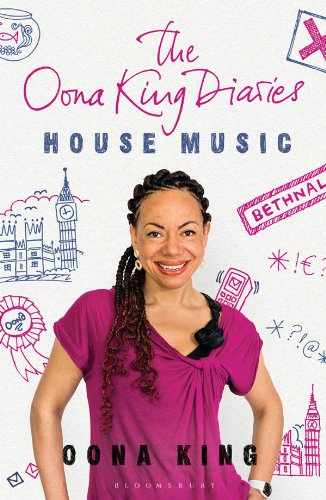Let me begin by making one thing very plain: at this point in time, it is the will of the British people to leave the European Union, and therefore negotiations on Brexit must take place. Once they conclude, and once the shape and meaning of Brexit becomes clear, at that point, it is only fair and democratic that the British people accept or reject the final deal.
The problem is, at the moment we have no idea when that deal will be made, even if it will be made, or what it will include. To borrow a phrase, we know nothing.
David Cameron repeatedly said that if he lost the referendum vote, he’d trigger Article 50 for Britain to leave the EU. Well he didn’t trigger Article 50, but he did trigger a series of events that may lead to the break up of the United Kingdom, and the impoverishment of its people.
So let’s return to the British people. They voted by a narrow margin to leave the EU.
But many British people, possibly the majority, were unaware of the far-reaching consequences of the EU Referendum. After all, they were asked “do you want to Leave the EU?” Not: “Do you want to break up the UK?”
This likely outcome was not clearly articulated by either side during the referendum campaign. And this brings us back to that central problem: after the dust has settled in the immediate aftermath of the referendum vote, we don’t actually know what we voted for. We have no idea.
Did we vote to leave the EU but stay in the single market? A lot of people who voted and campaigned for Brexit, including Boris Johnson and Michael Gove, say that’s what they were fighting for. Really? Well, we’re not going to get that, unless we accept free movement of people, which the Remain camp does accept; but many in the Leave camp don’t.
In fact if you go to many of those forgotten British towns that have been left to struggle on their own, many in the North like Don Valley, or places in the South like Thurrock and Ebsfleet, or places in Wales like Ebbw Vale and Gwent, a lot of those who voted Leave said they did so because they wanted to restrict free movement of people. Well they’ve voted for something that probably won’t ever happen. They’ve already been deceived. At least let them have the final say.
Two weeks ago Wales voted decisively to Leave the EU. After only two weeks, a new opinion poll released yesterday shows massive Voter’s Remorse, and Wales has changed its mind. If there was a second referendum that poll finds that Wales would opt to stay in the EU by a margin of 52% to 47%.
Notwithstanding this apparent change of heart, It would be entirely illegitimate for Parliament to thwart the will of the British people by voting down Brexit, even if Leave’s key claims are untrue. It is entirely legitimate, however, for Parliament to ask the British people to review their vote, as it has monumental and unintended consequences for our country’s future.
Governments are constantly asked to reconsider their legislation, whether by judicial review, or legislative amendments in the Commons or Lords. In the same way that governments must often vote on their legislation a second time, so too should citizens - and like governments, they are quite entitled to vote the same way if they choose.
In these extraordinary circumstances the House of Lords should fulfil its constitutional role: our role is to require legislators to pause, reflect, and vote again.
We have no elected authority, our only role is to scrutinise the decisions of those with democratic authority (in this case the British people), to bring more facts to their attention, and ask them to review their decision.
But if there is a Second Referendum, here’s a note of warning to all in the Leave camp: it will be lost again unless we do not have a very clear plan to spread economic opportunity beyond affluent groups. We should reflect on one point above all: our current constitutional crisis is built on inequality.
Losing Britain’s position as the world’s 5th largest economy is meaningless to those with no toe-hold in our economy. But one thing is for sure: making Britain poorer won’t help Britain’s poorest communities. Shamefully, making Britain richer didn’t help either, so we should thank the Leave campaign for illuminating an inescapable truth: if we do not radically change our economy to provide opportunity for ALL of Britain, not just metropolitan Britain and its elites, then our country as we know it will cease to exist. Our identity as a tolerant, influential, outward-facing people, will vanish.
So if Parliamentarians believe citizens have voted for something that threatens the future prosperity and fundamental integrity of the United Kingdom, then they must tell the British people what they routinely tell the British Government: pause, reflect, vote again.
Today Parliamentarians will not play that role. But it doesn’t really matter what they say today, it’s what they say once Brexit is negotiated. This is the most important peace-time challenge Britain has ever faced - certainly the most important in my lifetime - and we have no plan.
Basically, the Remain camp had no Plan B, and the Leave camp had no Plan A.
Our economic prospects are fading: since Brexit the pound has crashed to a 30 year low, and innumerable large companies making plans, right now, today, to exit Britain.
But the political prospects of sorting this out are ebbing away, almost as quickly as the strength of the pound. And in the meantime, hate Crime is on the rise. We are turning into a country we don’t recognise.
Last week a member of this House told me that a friend of hers, a white man, was stopped in his car by a group of men. They asked him, threateningly, “What language do you speak?”
“English,” he said, “I’m English!”
“Well that’s alright then,” they said, and drove away.
As someone who’s campaigned on issues around xenophobia for years, what is this country coming to if white English men have to put up with racism?? Of course we expect Black British people to put up with it, but not white English men: Whatever next?!
The genie is out of the bottle, and we need to protect our tolerant society in every way we can. That’s why I brought this debate in Parliament, to ask if the government had made an assessment of the case for a second referendum.
The government minister will be forced to stand up now, and say “YES we’ve made an assessment, and NO, there will not be a referendum.” Well, politicians often eat their words. Look at David Cameron and Article 50, look at Nigel Farage saying migration would be brought down, look at Boris Johnson claiming £350million a week for the NHS. And then let’s look at ourselves and what we have to say.
I say this: in the interests of democracy the British people must be given the chance to vote on the deal to leave the EU, once we finally know what that deal is, and what that deal costs, in terms of our economy, our jobs, our pensions, our future, our global influence, our geographical borders, and last but certainly not least, our precious identity as a tolerant open-facing nation.
I say, let the people decide.

